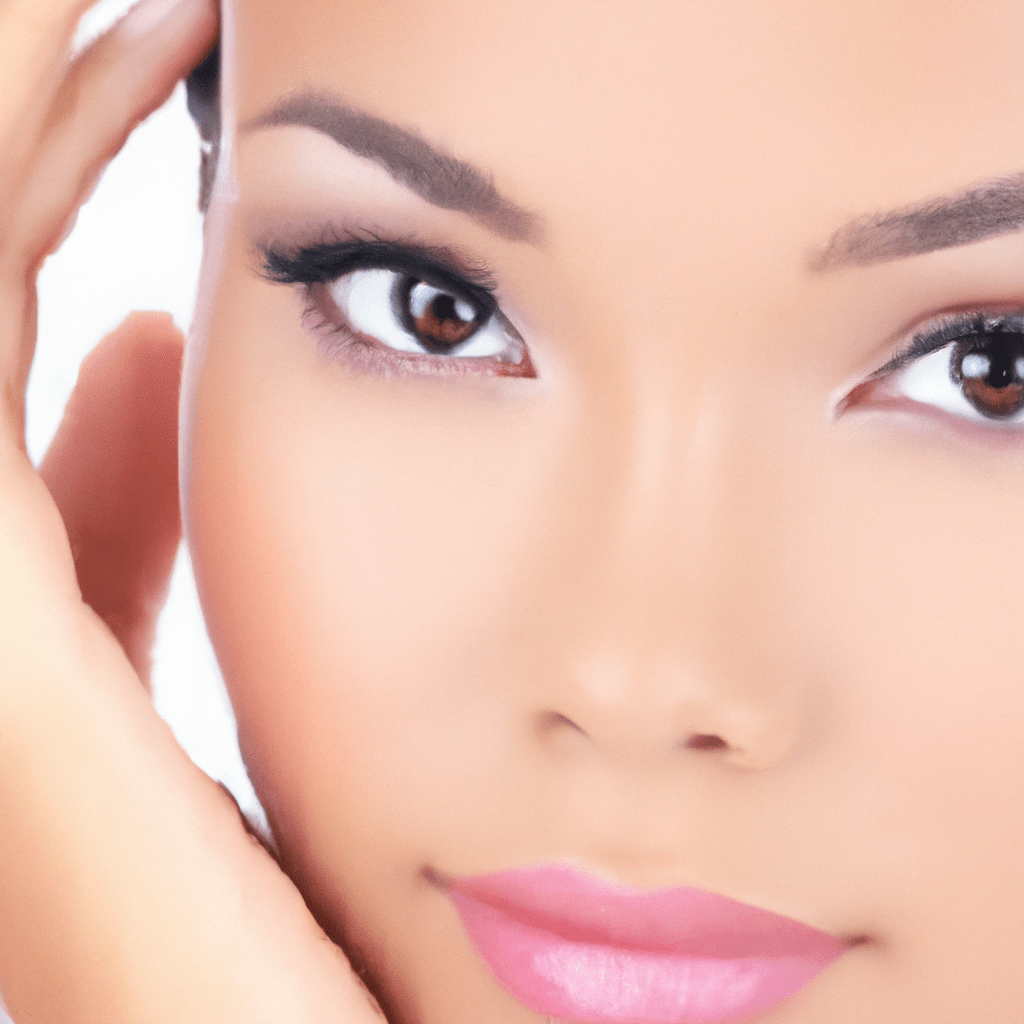Acne is something that almost everyone has dealt with at some point in their lives. It can be frustrating and even embarrassing, but have you ever wondered if it can spread to other areas of your body? In this article, we will explore whether or not acne has the ability to invade different parts of your skin, and what you can do to prevent and treat it if it does. So, if you’re tired of battling those pesky pimples and want to know if they could potentially pop up in unexpected places, keep reading to find out more.
What is Acne?
Definition
Acne is a common skin condition that affects individuals of all ages. It is characterized by the presence of pimples, blackheads, whiteheads, and sometimes cysts or nodules on the skin. Acne usually occurs on the face, chest, back, and shoulders. It can range from mild to severe, and while it is not a life-threatening condition, it can have a significant impact on a person’s self-esteem and overall well-being.
Causes
There are several factors that contribute to the development of acne. One of the main causes is the overproduction of oil (sebum) by the sebaceous glands in the skin. When there is an excess of sebum production, it can combine with dead skin cells and clog the hair follicles. This leads to the formation of comedones, which can then become inflamed and turn into pimples.
Hormonal changes also play a significant role in the development of acne. During puberty, the body undergoes hormonal fluctuations, particularly an increase in androgens. These hormones stimulate the sebaceous glands to produce more oil, which can contribute to the development of acne.
Other factors that can contribute to acne include bacterial infection, inflammation, genetics, certain medications, and even certain lifestyle choices such as diet and stress.
How Does Acne Develop?
Formation of Acne
Acne develops when the hair follicles become blocked with a combination of oil, dead skin cells, and bacteria. This blockage creates an ideal environment for the growth of bacteria, particularly Propionibacterium acnes, which is commonly found on the skin. The presence of these bacteria can trigger an immune response, leading to inflammation and the formation of pimples.
Types of Acne
There are several types of acne, each with its own characteristics and severity. The most common types include:
- Whiteheads: These are closed comedones that appear as small, flesh-colored bumps on the surface of the skin.
- Blackheads: These are open comedones characterized by darkened plugs that develop when the clogged pores are exposed to air.
- Papules: These are small, raised bumps that are often red, inflamed, and tender to the touch.
- Pustules: These are similar to papules but contain pus, making them appear as white or yellow bumps.
- Nodules: These are large, painful, solid bumps that develop deep within the skin.
- Cysts: These are the most severe form of acne and are characterized by large, pus-filled lesions that can cause scarring.

Common Areas Affected by Acne
Face
The face is the most common area affected by acne. The presence of large sebaceous glands and hair follicles on the face makes it prone to the accumulation of oil and the development of acne. Acne on the face can range from mild to severe, and it can significantly impact a person’s self-confidence and well-being.
Chest
Acne can also manifest on the chest. This is particularly common in individuals who engage in activities that cause excessive sweating or those who wear tight-fitting clothing. The accumulation of sweat and friction can irritate the skin and contribute to the development of acne on the chest.
Back
Acne on the back, also known as “bacne,” is another common occurrence. The skin on the back has a higher concentration of sebaceous glands and is often covered by clothing, which can create an environment conducive to acne formation. Back acne can be particularly challenging to treat due to its hard-to-reach location.
Shoulders
Shoulder acne is often an extension of acne on the back. It can be caused by similar factors such as tight clothing or excessive sweat. The presence of acne on the shoulders can be uncomfortable and may restrict an individual’s choice of clothing.
Factors Contributing to Acne Spreading
Bacterial Infection
Bacterial infection plays a significant role in the spread of acne. When the hair follicles become blocked, the trapped oil and dead skin cells create an ideal environment for bacteria to thrive. The presence of bacteria can lead to inflammation and the formation of acne lesions. If left untreated, these bacteria can spread to surrounding areas and cause acne to spread as well.
Excess Oil Production
Excessive oil production is a common factor contributing to acne spread. When the sebaceous glands produce more oil than necessary, it can clog the hair follicles and create a breeding ground for acne-causing bacteria. The excess oil can also contribute to the spread of acne to nearby areas of the skin.
Hormonal Changes
Hormonal changes, particularly during puberty, can have a significant impact on acne development and spread. The increase in androgen hormones stimulates the sebaceous glands to produce more oil, which can lead to clogged hair follicles and the formation of acne. Hormonal fluctuations can also affect the shedding of dead skin cells, leading to their accumulation and further contributing to acne spread.

Can Acne Spread from One Area to Another?
Contagious Nature of Acne
Acne itself is not a contagious condition. It cannot be spread from one person to another through direct contact. However, certain factors can contribute to the spread of acne from one area to another within the same person’s skin.
Transmission through Touch
Acne can be spread from one area to another by touching or picking at the affected skin. When you touch or scratch acne-prone areas, you can transfer bacteria or irritate existing pimples, which can lead to the development of new acne lesions in nearby areas. It is crucial to avoid touching or picking at acne to prevent its spread.
Impact of Popping or Squeezing Pimples
Popping or squeezing pimples can also contribute to acne spread. When you pop a pimple, the bacteria and debris from the pimple can be forced deeper into the skin, leading to further inflammation and the potential spread of acne to surrounding areas. It is important to resist the urge to pop or squeeze pimples and instead use proper acne treatments to promote healing without causing further damage.
Preventing Acne Spread
Maintaining Good Hygiene
Maintaining good hygiene is essential in preventing acne spread. It is important to wash the affected areas gently with a mild cleanser, avoiding harsh scrubbing that can irritate the skin. Regularly washing your face, chest, back, and shoulders can help remove excess oil, bacteria, and dead skin cells, reducing the likelihood of acne spread.
Avoiding Touching the Face
To prevent the spread of acne, it is essential to avoid touching the face or acne-prone areas with your hands. Your hands come into contact with numerous surfaces throughout the day, and they can carry bacteria that could potentially aggravate existing acne or cause it to spread. It is best to keep hands away from the face and to avoid picking or scratching at acne lesions.
Regularly Washing Pillowcases and Towels
Pillowcases and towels can harbor bacteria, oil, and dead skin cells, which can contribute to the spread of acne. It is recommended to wash your pillowcases and towels regularly to maintain proper hygiene. Changing out pillowcases every few days and using a fresh towel after each use can help minimize the transfer of bacteria and reduce the risk of acne spread.
Treating Acne to Prevent Spread
Topical Medications
Topical medications are commonly used to treat acne and prevent its spread. These medications typically contain ingredients such as benzoyl peroxide, salicylic acid, or retinoids that help reduce inflammation, unclog pores, and kill acne-causing bacteria. Applying these topical treatments consistently to the affected areas can help control acne and minimize the risk of its spread.
Oral Medications
In more severe cases, oral medications may be prescribed by a dermatologist. These medications may include antibiotics, hormonal treatments, or isotretinoin. Oral medications work from within to target underlying causes of acne and help prevent its spread. However, they often come with potential side effects and should be used under the guidance of a healthcare professional.
Lifestyle Changes
Making certain lifestyle changes can also help prevent the spread of acne. Following a healthy diet rich in fruits, vegetables, and whole grains can promote skin health. Regular exercise can improve blood circulation and help maintain hormonal balance. It is also important to manage stress levels, as stress can trigger hormonal fluctuations that contribute to acne development and spread.
Can Acne Be Limited to Specific Areas?
Genetics and Acne Location
Genetics can play a role in the location of acne. Some individuals may have a genetic predisposition to develop acne in specific areas, such as the face, chest, back, or shoulders. While acne can appear in various areas, it is not solely determined by genetics and can be influenced by other factors such as hormones, bacteria, or lifestyle choices.
Follicle Sensitivity
Individuals with acne-prone skin may have hair follicles that are more sensitive to the hormonal changes and bacteria that contribute to acne development. This sensitivity can make certain areas of the skin more susceptible to acne, leading to a higher concentration of acne lesions in those specific areas. However, with proper treatment and preventive measures, acne can be managed and its spread limited.
Complications of Acne Spread
Scarring
Acne can lead to the formation of scars, particularly if the acne lesions are picked, squeezed, or inflamed. These scars can be temporary or permanent and can significantly affect an individual’s self-esteem. It is important to treat acne promptly and avoid habits that can worsen inflammation and increase the risk of scarring.
Hyperpigmentation
Hyperpigmentation, the darkening of the skin, can also occur as a result of acne. When acne lesions heal, they can leave behind dark spots or patches that can take months or even years to fade. Protecting the skin from sun exposure and using appropriate acne treatments can help prevent or minimize hyperpigmentation.
Psychological Impact
Acne can have a significant psychological impact on individuals. It can affect self-confidence, body image, and overall well-being. The physical appearance of acne can make individuals feel self-conscious and result in anxiety, depression, or social withdrawal. It is important to address the emotional and psychological effects of acne along with its physical treatment.
Seeking Professional Help
Dermatologists
If you are struggling with acne or its spread, it is advisable to seek professional help from a dermatologist. Dermatologists are medical experts specializing in skin conditions and can provide a personalized treatment plan to address your specific concerns. They can prescribe medications, perform procedures, and offer guidance on skincare routines to help manage acne effectively and prevent its spread.
Skin Care Specialists
Skin care specialists, such as estheticians or skincare therapists, can also provide valuable advice and treatments for acne. They can help develop a skincare routine tailored to your skin type and offer specialized treatments like facials or exfoliation to promote healthy skin and prevent acne spread. Working with a skincare specialist can complement the medical treatment provided by a dermatologist.
In conclusion, while acne is a common skin condition, it can have a significant impact on individuals physically, emotionally, and psychologically. Understanding the causes, development, and spread of acne is crucial in managing and preventing its impact on your skin. By maintaining good hygiene, avoiding habits that can aggravate acne, and seeking professional help when needed, you can effectively manage acne, limit its spread, and regain your confidence and well-being.




